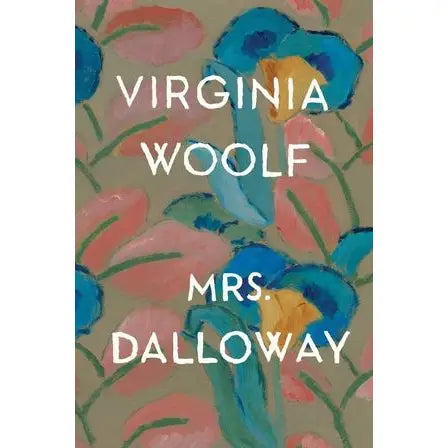Mrs. Dalloway
$10.99
Unit price / perThis new edition of one of Virginia Woolf’s most celebrated novels features an introduction by Michael Cunningham, acclaimed bestselling author of The Hours.
Mrs. Dalloway chronicles a June day in the life of Clarissa Dalloway–a day that is taken up with running minor errands in preparation for a party and that is punctuated, toward the end, by the death of a young man she has never met. In giving an apparently ordinary day such immense resonance and significance–infusing it with the elemental conflict between death and life–Virginia Woolf triumphantly discovers her distinctive style as a novelist. Originally published in 1925, Mrs. Dalloway is Woolf’s first complete rendering of what she described as the “luminous envelope” of consciousness: a dazzling display of the mind’s inside as it plays over the brilliant surface and darker depths of reality.
This edition uses the text of the original British publication of Mrs. Dalloway, which includes changes Woolf made that never appeared in the first or subsequent American editions.
Share
Sign up for our newsletter
Keep up with what's going on at Queer Haven Books for exclusive deals, news, and offers.
ABOUT
South Carolina’s only independent, queer bookstore. Shop Queer Haven Books for books, sit down with a cup of coffee, read a queer book, play a queer game, and build a queer community.
1332 Main Street, Unit #120
Columbia, South Carolina 29201
803-500-9543
queerhavenbooks@gmail.com
South Carolina’s only independent, queer bookstore. Shop Queer Haven Books for books, sit down with a cup of coffee, read a queer book, play a queer game, and build a queer community.
1332 Main Street, Unit #120
Columbia, South Carolina 29201
803-500-9543
queerhavenbooks@gmail.com
HOURS
Monday-Tuesday Closed
Wednesday 11am-8pm
Thursday 11am-8pm
Friday 11am-8pm
Saturday 9am-6pm
Sunday 10am-3pm
Monday-Tuesday Closed
Wednesday 11am-8pm
Thursday 11am-8pm
Friday 11am-8pm
Saturday 9am-6pm
Sunday 10am-3pm

